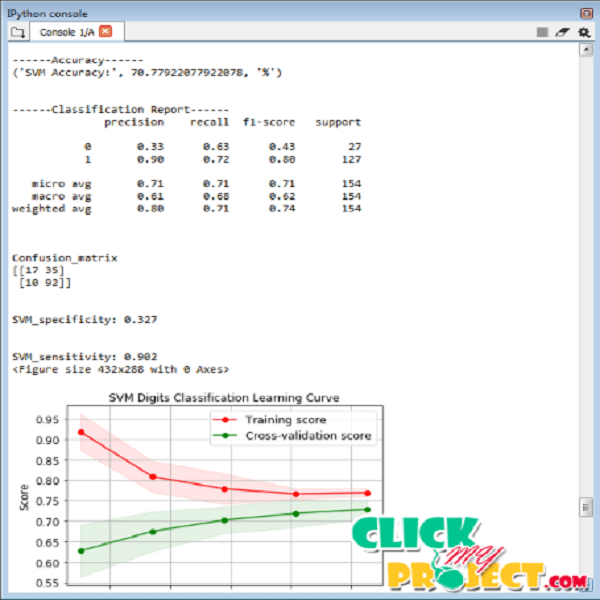Examining Successful Attributes for Undergraduate Students by Applying Machine Learning Techniques
₹6,000.00
10000 in stock
SupportDescription
Contribution: This study applies supervised and unsupervised machine learning (ML) techniques to discover which significant attributes that a successful learner often demonstrated in a computer course. Background: Students often experienced difficulties in learning an introduction to computers course. This research attempts to investigate how successful students regulate their learnings in this course. The answer to these questions will provide teachers with useful information to better comprehend how students learn and which strategies are effective in learning. Research Questions: 1) Which algorithm in supervised learning is the best one for predicting students’ final performance? and 2) What attributes are key to succeed in this course? Methodology: Seven supervised ML algorithms and ensembles are conducted to compare the performance of classifiers regarding the levels of accuracy, precision, and sensitivity. The association rule and clustering are also employed to discover the key attributes for successful students. Because the present study used a convenience sample for data analysis, the number of students in each cluster was a potential limitation. Findings: The results show that Naïve Bayes is the most appropriate one for predicting students’ final performance. The measure in accuracy and sensitivity of this classifier achieves 83.26% and 92.88%, respectively. In addition, the association rule indicates that “to make sure keep up with the weekly progress in the class” and self-efficacy beliefs play important roles on final performances for learners. The clustering findings reveal similar results.




